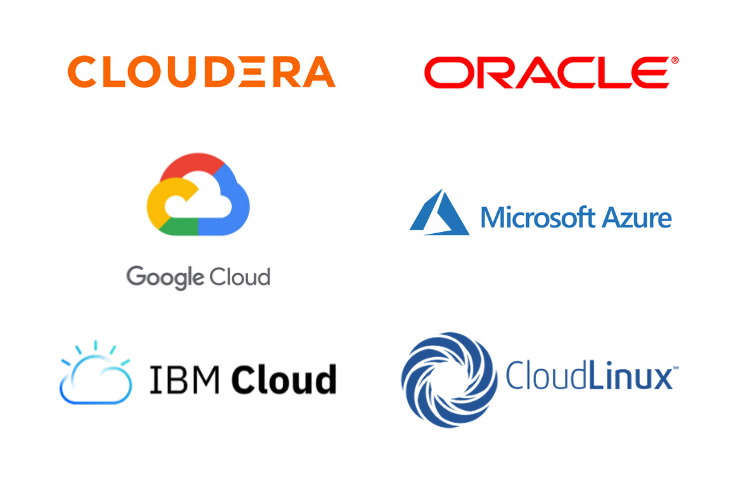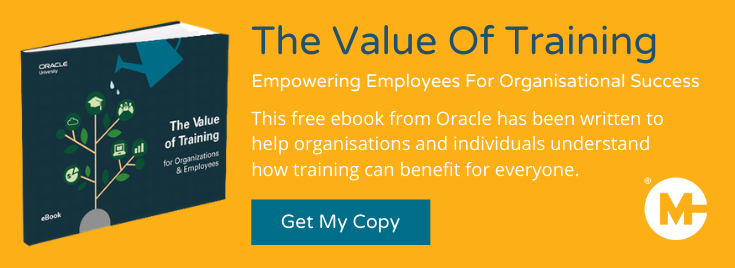6 Top Cloud Software Solutions And How To Get The Most From Them

Cloud computing is great for sharing files, keeping programs and user profiles consistent between machines, and rapidly transferring metrics and data to a central server.
If you need remote oversight of a sprawling database, a cloud structure is often the way to go. Online cloud services serve as a safe, simple way to access your important files and co-ordinate group projects across a global, scattered network of IT staff. Cloud computing can also help make your business greener by streamlining your resource and energy usage, cutting costs in the process.
However, finding the best cloud computing platforms for your business can be tricky. You need to know what the different cloud platforms can do, how they do it, and what additional service they offer your IT development and frontline employees.
Here’s a short but snappy guide to six of the most popular cloud software solutions out there at the moment.
1. Microsoft Azure
Microsoft Azure is Microsoft’s premier cloud data management suite. Azure has been available since March 2014. The program was released as a professional-quality software suite for managing the remote use of Microsoft data centres by third-party clients and accredited Microsoft partners. It’s fully compatible with all the latest releases of Windows 10.
Azure specialises in data integration over light standalone storage (for which Microsoft offers the free OneDrive service). Azure gives administrative users access to remote virtual machines, online app management, heavy-duty data storage and management, and web hosting, as well as a vast range of data analytic and aggregation tools aimed at market data analysts. Azure also offers an internal, secure messaging system and push notifications for closed, remote networks on mobile devices.
Azure is ideal for mid to large-scale businesses looking for an all-in-one remote data solution, primarily for Windows devices. Its sheer versatility makes it an attractive choice for clients in almost every sector.
2. Cloudera
Cloudera is a standalone cloud suite aimed more at specialised, dedicated systems that rely on machine learning and require a high level of security. It can be used to remotely store and manage data sets and key programs for intelligent machinery and smart megastructures, all overseen from a single dashboard.
While it requires a degree of specialisation, integration, and training to work well, Cloudera is the platform of choice for high-tech, high-end customers in manufacturing, healthcare, and logistics. Cloudera offers a secure, dedicated server guarantee for critical, sensitive data, such as that used to make life-or-death decisions, and can incorporate modular, algorithmic learning and processing add-ons.
3. Oracle
Oracle is one of the oldest cloud computing companies around. The software giant released their first remote-storage capable version of Oracle Database in 1979. Oracle Database is now fully cloud-capable and can upgrade older data sets to the cloud. They also offer cloud integration and remote access for the majority of their products, as well as traditional, dedicated remote storage for fixed, static file sets. While Oracle isn’t the first name in cloud computing, they’ve got a solid bedrock of remote expertise underpinning what they do.
4. IBM Cloud Services
IBM Cloud Services refers to the broad family of utilities that IBM offers to promote remote functionality and storage. They tend to market their cloud computing capabilities to big business and sales departments, more than individual IT admins and power users. IBM Cloud Services provide heavy-duty, secure storage for big business and personal clients. IBM offer bespoke, remote program access, delivering precise business analytics tailored to the needs of each client.
5. CloudLinux
CloudLinux OS is the oddball of popular cloud hosting and management platforms. Accessed via a standalone Linux operating system, CloudLinux is a fully-online service, giving administrators precise control over web hosting and shared network hosting environments. In this role, it allows personalisation of web profiles and dedicated data management. However, CloudLinux lacks many of the analytical and comms tools seen in other cloud packages. It’s also based on the Linux kernel, which few desktop computers and mobile devices worldwide use unaltered, limiting the capacity for alteration. While Linux provides many vital services to Windows and Android machines, direct program compatibility and transferability may also be an issue.
6. Google Cloud
Google Cloud is a paid cloud service tied to the sprawling Google empire of free utility programs and online tools. Its main strengths are its easy integration and extremely broad focus. Aimed at being a go-anywhere, do-anything tool, Google Cloud offers analytics, storage, and dynamic data display and management. It’s one of the few large-scale cloud platforms to focus directly on audio/video management, promoting rapid transmission and updates of video, audio, and visual content via centralised storage and curation.
For this reason and others, Google Cloud is popular with public-facing retail companies – particularly as Google offers its own, machine-learning capable retail analysis package remotely to corporate users. However, more specialised and private businesses may be better off using a bespoke solution to cloud storage.
Remote Cloud Computing Training from CourseMonster
If you need to train your employees in any aspect of cloud computing, visit CourseMonster Training’s new website today. We offer industry-leading training courses in cloud platforms, general cloud computing use, and programming languages and techniques, accredited by Google, IBM, Oracle and other leading developers. Please get in touch today to find out more.





Comments ()